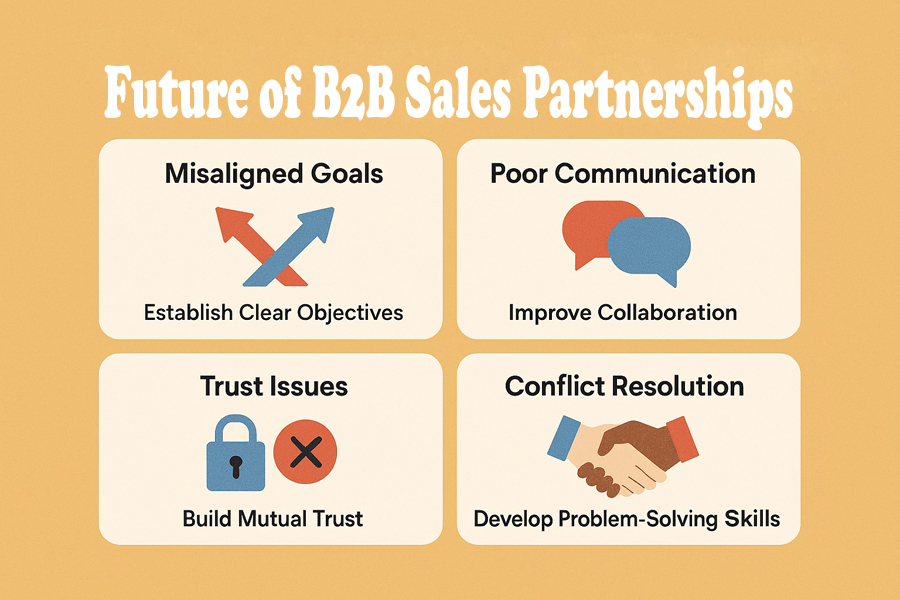In today’s competitive business landscape, companies are increasingly relying on B2B sales partners to expand their reach, boost revenue, and tap into new markets. A B2B sales partner is a business entity or individual that helps another company sell its products or services to other businesses. This strategic collaboration enables faster growth, localized market access, and reduced operational costs. Whether you’re a SaaS provider, manufacturer, or distributor, understanding the role and value of B2B sales partners is essential. This article explores the concept in depth, covering their responsibilities, benefits, models, and how to build successful partnerships.
Definition of a B2B Sales Partner
A B2B sales partner is a third-party business or individual that sells a company’s products or services to other businesses. Unlike B2C models, where the end customer is a consumer, B2B partners focus on selling to organizations, enterprises, or institutions. These partners may operate as resellers, distributors, agents, or channel partners. Their primary role is to generate leads, close deals, and manage client relationships on behalf of the parent company. By leveraging their own networks and expertise, B2B sales partners help companies penetrate new markets and scale faster. This model is especially popular in industries like software, manufacturing, and wholesale trade.
Key Responsibilities of B2B Sales Partners
B2B sales partners play a crucial role in driving business growth. Their responsibilities include identifying potential clients, pitching products, negotiating contracts, and ensuring post-sale support. They often act as the face of the company in regional or niche markets. Partners may also provide market feedback, assist in customizing offerings, and help with onboarding new clients. In some cases, they manage billing and logistics too. A successful B2B partner understands the product deeply, aligns with the company’s goals, and maintains strong communication. Their performance is usually measured through KPIs like sales volume, client retention, and lead conversion rates.
Types of B2B Sales Partnerships
There are several models of B2B sales partnerships, each suited to different industries and goals. Common types include:
Resellers: Buy products and sell them to other businesses.
Distributors: Handle bulk sales and logistics.
Referral Partners: Earn commission by recommending clients.
Value-Added Resellers (VARs): Customize products before selling.
Channel Partners: Represent the brand in specific regions. Choosing the right model depends on your product complexity, target market, and scalability needs. Hybrid models are also emerging, combining sales with support and marketing. Understanding these types helps businesses structure partnerships that are both profitable and sustainable.
Benefits of Having B2B Sales Partners
Partnering with B2B sales agents offers multiple advantages. First, it reduces the cost of hiring and training an in-house sales team. Second, it provides access to local markets and customer bases that may be hard to reach directly. Third, it accelerates revenue generation by leveraging existing networks. Additionally, partners bring valuable insights into customer behavior, competition, and pricing strategies. For startups and SMEs, B2B partnerships can be a game-changer, enabling rapid expansion without heavy investment. When managed well, these collaborations lead to long-term growth, brand visibility, and improved customer satisfaction.
How to Choose the Right B2B Sales Partner
Selecting the right B2B sales partner requires strategic evaluation. Start by defining your goals-are you looking for market expansion, lead generation, or brand representation? Next, assess the partner’s industry experience, client portfolio, and reputation. Compatibility in values, communication style, and business ethics is essential. Review their sales process, reporting mechanisms, and support capabilities. A trial period or pilot project can help test the partnership. Also, ensure clear contractual terms regarding commission, territory, and performance metrics. The right partner should not just sell your product but also enhance your brand’s credibility and customer trust.
Common Challenges in B2B Partnerships
While B2B sales partnerships offer great potential, they come with challenges. Misaligned expectations, poor communication, and lack of transparency can derail progress. Some partners may prioritize short-term gains over long-term relationships. Others may lack product knowledge or fail to represent the brand effectively. To mitigate these risks, companies should invest in partner training, regular performance reviews, and open feedback channels. Clear documentation, shared goals, and mutual accountability are key to overcoming hurdles. A proactive approach to conflict resolution and continuous engagement ensures that the partnership remains productive and profitable.
Tools and Technology for Managing B2B Partners
Modern businesses use various tools to manage B2B sales partnerships efficiently. CRM systems help track leads, sales, and partner interactions. Partner portals provide access to marketing materials, training resources, and performance dashboards. Automation tools streamline onboarding, reporting, and communication. Analytics platforms offer insights into partner performance and customer trends. Using the right tech stack enhances transparency, speeds up decision-making, and improves collaboration. Companies that invest in digital infrastructure for partner management often see higher ROI and better partner satisfaction. Technology is no longer optional-it’s a competitive necessity in B2B ecosystems.
Future of B2B Sales Partnerships
The future of B2B sales partnerships is dynamic and tech-driven. With remote work, global markets, and digital-first buying behaviors, partners must adapt quickly. AI-powered tools, virtual demos, and data-driven selling are reshaping how B2B deals are closed. Companies are focusing on partner enablement, offering training, incentives, and co-marketing opportunities. Sustainability, diversity, and ethical practices are also influencing partner selection. As competition intensifies, businesses will rely more on strategic alliances than transactional relationships. The B2B partner of tomorrow will be a brand ambassador, consultant, and growth catalyst-not just a salesperson.
Disclaimer: The articles, videos, and news published and shared on Theconnect24.com covering topics such as religion, astrology, health, yoga, history, mythology, and others are intended solely for general informational purposes. These materials are sourced from various references, and Theconnect24.com does not guarantee or verify their accuracy, completeness, or authenticity. Viewers are strongly advised to seek guidance from qualified experts or specialists before practicing, following, or experimenting with any information related to astrology, health, or similar subjects. This content is presented purely for the interest of viewers and does not carry any scientific validation or evidence.



